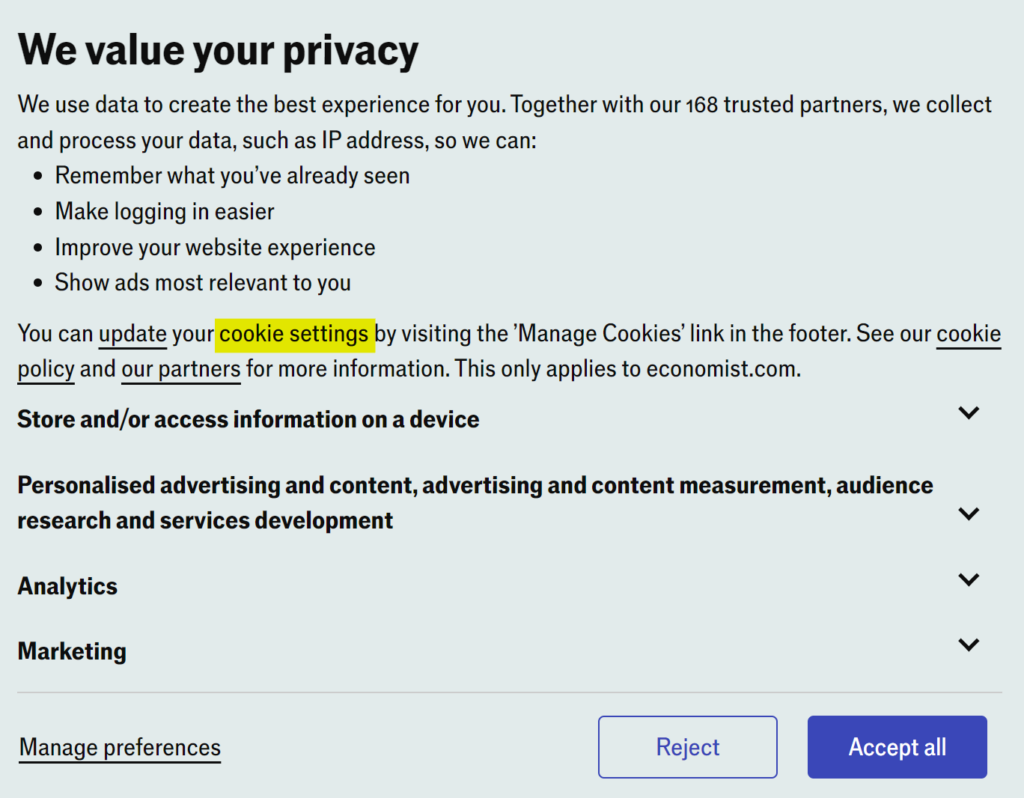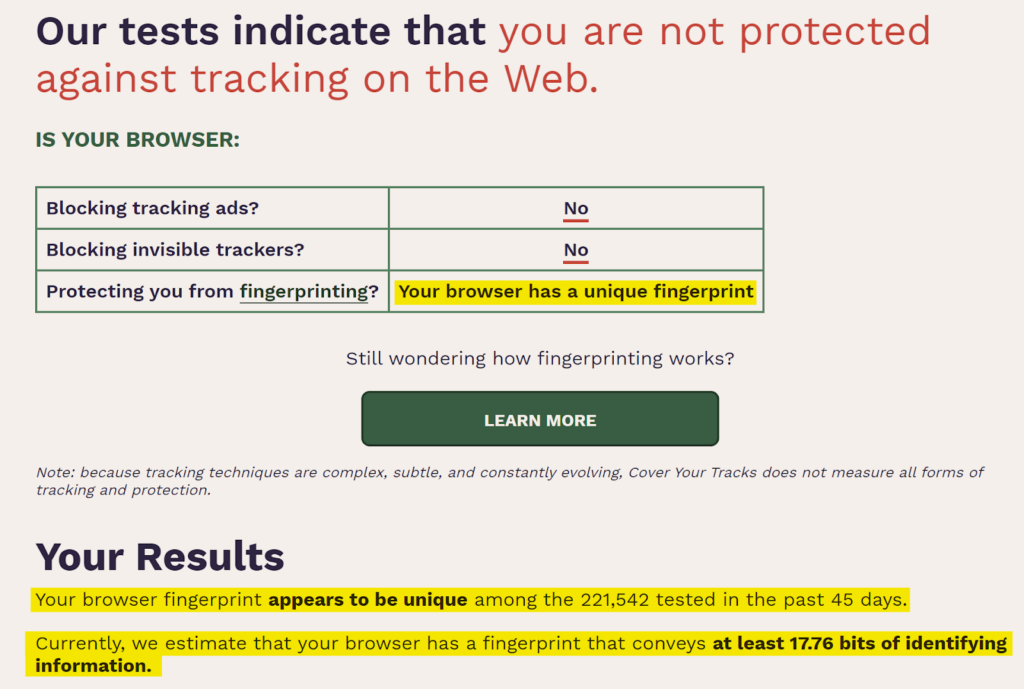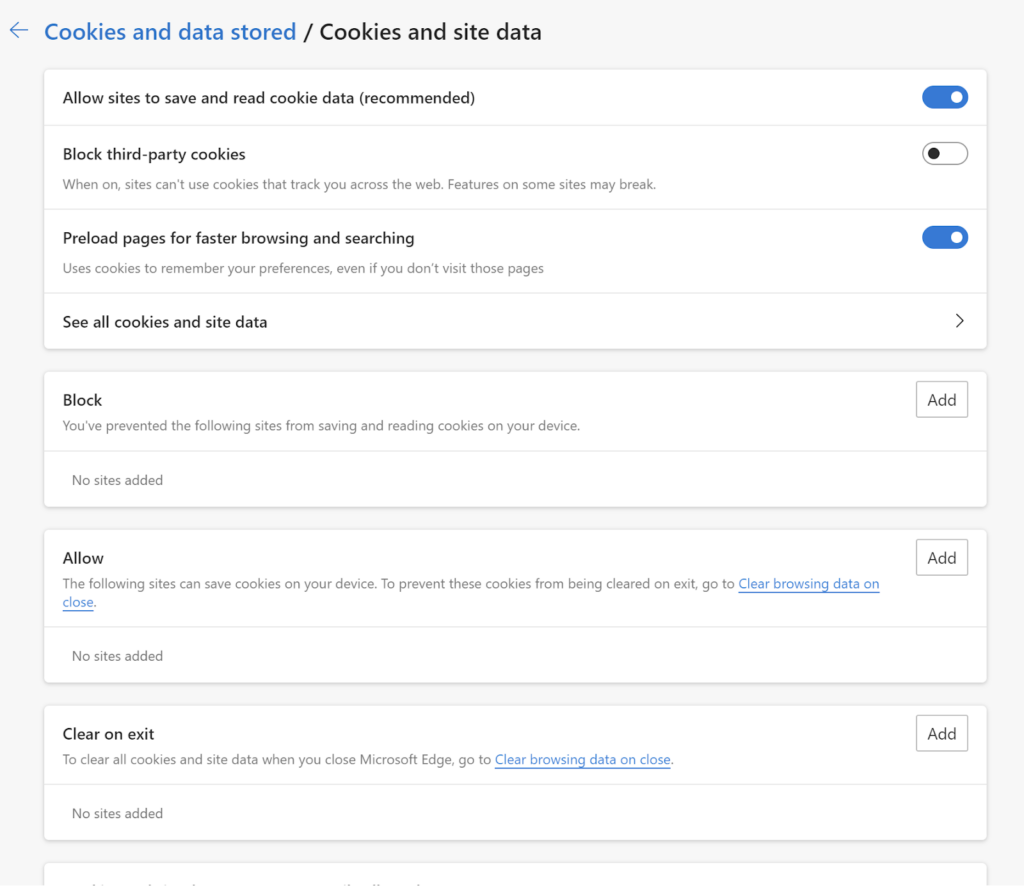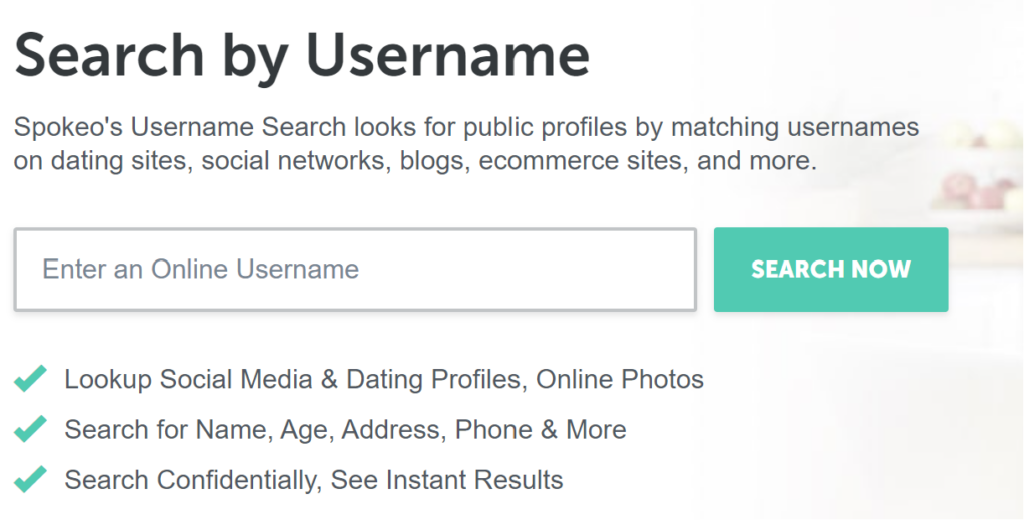How Do Websites Get Your Personal Information
Laura Martisiute
Reading time: 6 minutes

Table of Contents
If you’ve come across highly personalized ads or found unexpected tidbits of data about yourself online, you may have wondered: How do websites get your personal information in the first place?
In this guide, we’ll go over the different methods websites use to collect information about you and provide some tips on how you can minimize the spread of your data going forward.
How Do Websites Get Your Personal Information?
Websites employ several different techniques to gather information about you. The most common methods include cookies, IP address tracking, fingerprinting, and web beacons.
Cookies
Anytime you go to a website, you’ll see a pop-up asking you for consent to use cookies.

Cookies are small strings of text sent by a website to your web browser and back with your details.
Cookies can monitor your search history, how many times you visit a website, and more.
They come in two forms: First-party cookies, which are created by the website you visit, and third-party cookies, which are created by parties that are not the website owner, like advertising companies.
The main difference between the two is that while first-party cookies can be used to enhance the user experience (for example, by remembering what you’ve already seen), third-party cookies are used primarily to track user activity and display personalized ads based on their activity.
IP address tracking
Websites systemically take note of IP addresses as soon as a user connects to them. That means the website owner can see your IP address, gaining an approximate idea of where you are in the world and learning how long you spend on different parts of their site.
Fingerprinting
Once browsers enabled users to block or limit their cookie intake, a workaround was developed. Fingerprinting enables a website to identify you using a combination of your device and your web browser, along with myriad smaller details that create a unique “fingerprint” each time you visit.
Electronic Frontier Foundation’s “Cover Your Tracks” online tool lets you see how identifiable you are.

Web beacons
Web beacons are graphic files hidden on a website and sent to your computer as soon as you visit. Also known as “spy pixels,” they enable website owners to see what pages you’re visiting and for how long, along with where you’re clicking and what you’re interacting with.
How to Stop Websites From Tracking You
With so many invasive tracking techniques out there, it’s perfectly reasonable to look for a way to disable them. Fortunately, there are a few relatively easy steps you can take to limit how your online activities are tracked.

- Block third-party cookies in Chrome.
- Use an add-on designed to block tracking scripts.
- Use a browser with built-in tracking prevention, such as Firefox, which stops fingerprinting automatically.
- Change your browser settings to delete cookies every time you exit a browser.

- Consider a VPN to stop your IP address from being visible.
- Block images in your email service to prevent web beacons and cookies from getting in.
How Do Data Broker Websites Get Your Personal Information?
Data broker websites also collect your personal information.
Data brokers are companies that collect personal data about individuals and then sell that data to anyone who’ll pay their minimal fee. The data offered could be highly revealing, including your full name, home address, telephone number, family member details, education and work history, and much more.
Data brokers get their data using a host of different techniques. Let’s look at some of their most popular personal information sources.
Federal government
The federal government is one of the top customers of data brokers – but it also serves as one of the primary sources for them. Everything from your voter registration information to your age, ethnicity, occupation, and whether you’ve declared bankruptcy can come from the federal government.

State and local governments
State and local governments are another major source for data brokers. Data brokers can use them to find data like vehicle registration information, occupational licensing information, and property records.
Publicly available sources
Data brokers are notorious for using publicly available sources to scrape information. That includes media reports, business listings, forum posts, and social media profiles (such as Facebook and LinkedIn).
Speaking of social media profiles, some data brokers even let you search for individuals through their online usernames.

Commercial data sources
From credit card purchases to warranty registration, commercial companies collect a lot of information on their users. Some of it, in turn, winds up in the hands of data brokers. In addition, the FTC reports that some data brokers get consumers’ web browsing activities from online advertising networks.
Each other
Perhaps the biggest source of information for data brokers is other data brokers. They borrow indiscriminately from one another without stopping to verify information, meaning at least some information in their databases is obsolete or incorrect. According to one report, 40% of all information data brokers have on individuals is inaccurate or no longer accurate.
How to Remove Information from Data Brokers
You can opt out of data brokers, which will remove your profile from their databases.
However, you’ll need to opt out of every single data broker with a profile on you, and you’ll need to do so continuously, as data brokers will relist your profile when they collect more information about you.
As an alternative, you can subscribe to a data removal service such as DeleteMe to handle opting out of data brokers for you.
Reduce Your Digital Footprint
It may seem like an uphill battle to maintain your privacy while using the internet, but it’s not totally impossible. Remember that the less you share online – whether it’s making revealing posts on social media or letting cookies track your habits – the more private you’ll be.
Our privacy advisors:
- Continuously find and remove your sensitive data online
- Stop companies from selling your data – all year long
- Have removed 35M+ records
of personal data from the web
Save 10% on any individual and
family privacy plan
with code: BLOG10
news?
Don’t have the time?
DeleteMe is our premium privacy service that removes you from more than 750 data brokers like Whitepages, Spokeo, BeenVerified, plus many more.
Save 10% on DeleteMe when you use the code BLOG10.

















